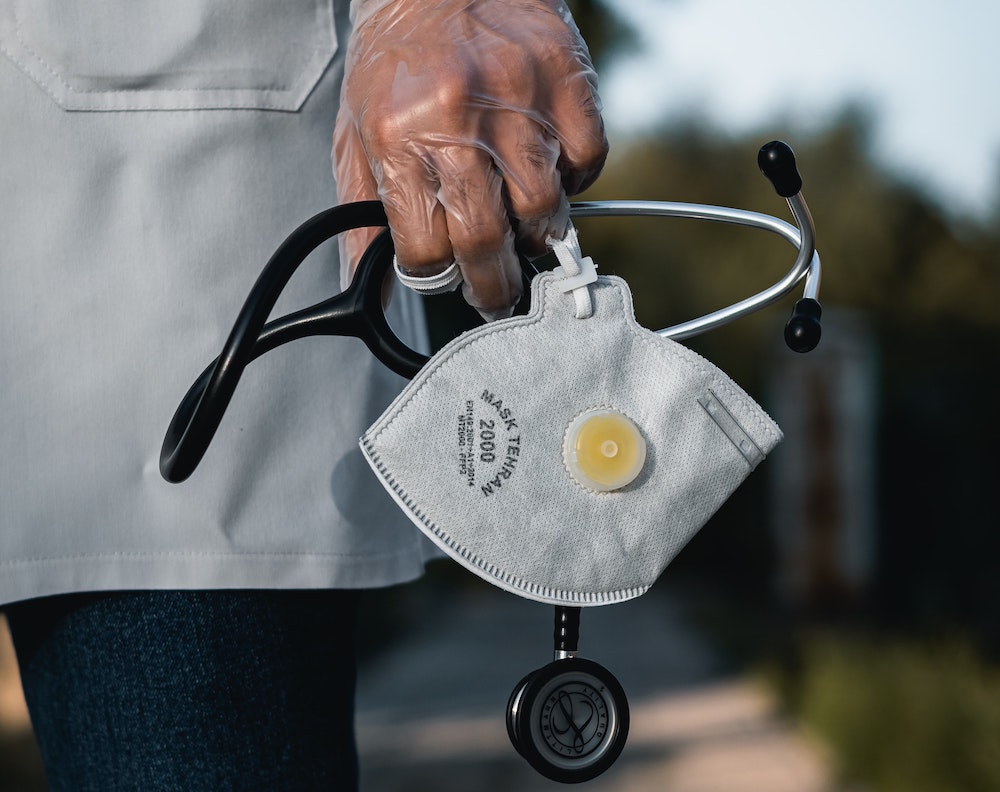Greetings, Agents of Impact!
Agents of Impact Call No. 21: Election Impact. Is President Trump a systemic risk? To keep the tent big, impact investing has long steered clear of politics. This November’s election is an exceptional case. Beeck Center’s Sonal Shah, Nonprofit Finance Fund’s Antony Bugg-Levine, Blue Haven Initiative’s Liesel Pritzker, i(x) investment’s Trevor Neilson and other Agents of Impact will share how they are meeting the moment. Join hosts David Bank and Monique Aiken for a provocative conversation on The Call, Thursday, July 30 at 10am PT / 1pm ET / 6 pm London. RSVP today.
Signals: Ahead of the Curve
Accelerating financing to respond to COVID. Many impact and venture capital investors remain in “wait and see” mode to reduce their exposure in the COVID crisis (see, “Even impact investors are fleeing risk in the face of the global pandemic”). That is pinching impact enterprises that need capital to meet rising demand for essential products and services. How two impact investing networks are unlocking capital:
1. MIT Solve rallies to provide bridge loans and revenue-based financing. “Businesses that provide vital services to vulnerable populations must be able to accelerate existing plans and re-deploy their systems to address the new challenges presented by the pandemic,” MIT Solve’s Casey van der Stricht writes in a guest post on ImpactAlpha. One source of capital that can quickly ramp up impact-aligned investments, Van der Stricht says: the more than $37 billion in U.S.-based donor-advised funds. Solve’s investment vehicle, Solve Innovation Future, is backed by such DAFs. Among Solve’s recent deals:
- Bridge capital to bridge health services. One of Solve Innovation Future’s first investments was in a $1 million bridge funding round for Access Afya, a Nairobi-based affordable healthcare provider. The investment capital, alongside an emergency grant from Open Road Alliance, enabled Access Afya to accelerate plans for its digital healthcare platform to expand care access to poor urban patients affected by health capacity shortages and lockdown movement restrictions.
- Revenue-sharing for online education. Solve supported revenue-based financing to early education app Kinedu to enable the company to offer its premium services for free in the early days of school shut-downs. That helped Kinedu expand its user base to over one million customers in Mexico, Brazil, and the U.S.
- Read on. “MIT Solve rallies to provide bridge loans and revenue-based financing,” by MIT Solve’s Casey van der Stricht.
2. Demo Day for a COVID-focused accelerator opens to the public. Demo days are a Silicon Valley tradition – or cliche – that give angel and venture investors exclusive access to startups graduating from accelerator programs. This week, XX, an accelerator spun out of the crowdfunding site WeFunder, is letting the public invest as little as $100 in the dozen COVID-related startups from its latest cohort. “We’re giving a chance to anyone that cares about this mission, or where the next vaccine is coming from,” says XX’s Gadi Borovich. The startups, selected from among 2,500 that applied to XX’s Fight the Virus challenge, each received $50,000 from an XX fund.
- COVID cohort. The pitches at the July 28 demo day, to be hosted on WeFunder, range from potential vaccines to virtual reality software. Stark Therapeutics is working on a COVID-19 vaccine using a protein from the SARS virus to train the body’s T cells to target infected cells. Precision therapeutics company Petri Bio is developing peptides that could neutralize the virus. VivaVax makes an antiviral coating, and 3C Bio is producing mobile testing labs.
- Small checks. The startups can raise up to $1.07 million from unaccredited investors via the ‘Regulation Crowdfunding’ securities exemption, and unlimited sums from high net worth, angel and venture investors through a parallel ‘Regulation D’ offering. Each startup pitching on demo day has a lead investor from XX’s network who has invested in the company on the same terms.
- Equity crowdfunding. ‘Reg CF’ offerings are opening impact opportunities for small investors (see, “Grassroots platforms are not waiting for Washington to invest in a green new deal).
- Be an insider.
Dealflow: Follow the Money
BNP Paribas launches long-short fund for green energy leaders and laggards. The fund allows BNP to invest in companies advancing green energy (the long strategy) and bet against companies failing to transition (the shorts). The Environmental Absolute Return Thematic fund will invest an initial $50 million and can raise up to $1 billion, Bloomberg Green reports. It complements BNP’s existing long-only Energy Transition fund.
- Shorting is in. See, “Can quant strategies improve ESG performance?” on ImpactAlpha.
PlantLab secures €20 million to bring its vertical farms to the U.S. The Dutch indoor farming venture launched in 2010 with one farm in Amsterdam. With backing from De Hoge Dennen Capital, the company will build new facilities in the Netherlands, the U.S. and the Bahamas.
Series: Walking the Talk
Nia’s Kristin Hull: How I invest in environmental sustainability and social change. Kristin Hull founded Nia Community Investments in 2010 with a focus on racial justice in her hometown of Oakland, Calif. “While I was having fun meeting local entrepreneurs solving key problems, directing capital toward innovative solutions, and earning significant returns, I saw that few investors were following suit,” she writes in the latest installment in ImpactAlpha’s “Walking the Talk” series, in partnership with Confluence Philanthropy, which features investors who are bringing impact and sustainable investing strategies to their own portfolios. “I saw the need to meet investors where they were—back on Wall Street.” With Nia Global Solutions, launched in 2013, Hull curates a selection of public-market companies along six solution themes, eliminating companies lacking diversity in leadership.
In her own portfolio, Hull says she has always sought to invest “at the intersection of environmental sustainability and social change.” In collaboration with Root Capital, she seeded a high-impact, fixed-income product for investment in women-run agriculture ventures and is still an investor 12 years later. Hull is a co-founder of the Oakland Impact Hub co-working space. “With COVID-19, co-working may be a thing of the past,” she writes. “Positive impact-wise, these investments have had hockey stick returns, and yet dollar-wise, I anticipate there will be some write-offs happening soon.” Other investments include Oakland-based plant-based ice cream company Kubé Nice Cream and LaborX, a marketplace for hiring talent from non-traditional backgrounds, as well as Impact America Fund and Illumen Capital. “I keep as much money in my local community as I can,” says Hull, who banks at Beneficial and keeps cash alternatives in CNote (both women-run companies). “I fully see that our assets are an extension of ourselves, and that our investment dollars do create the world we live in.”
Keep reading, “How I invest in environmental sustainability and social change,” by Kristin Hull on ImpactAlpha.
- Walking the talk. Impact investors and advisors are sharing what’s in their portfolios. Catch up with Beth Bafford, Matthew Weatherley-White, Brent Kessel and Erika Karp.
Agents of Impact: Follow the Talent
Dan Block, ex- of Global Innovation Fund, joins Mercy Corps Ventures as investment principal, while Sam Orji joins as an investment analyst in Lagos… Rural Innovation Strategies is recruiting a director of impact in Hartland, Vt… UNDP is looking for a research and communications intern of private sector engagement in Istanbul.
Thank you for reading.
–July 27, 2020











